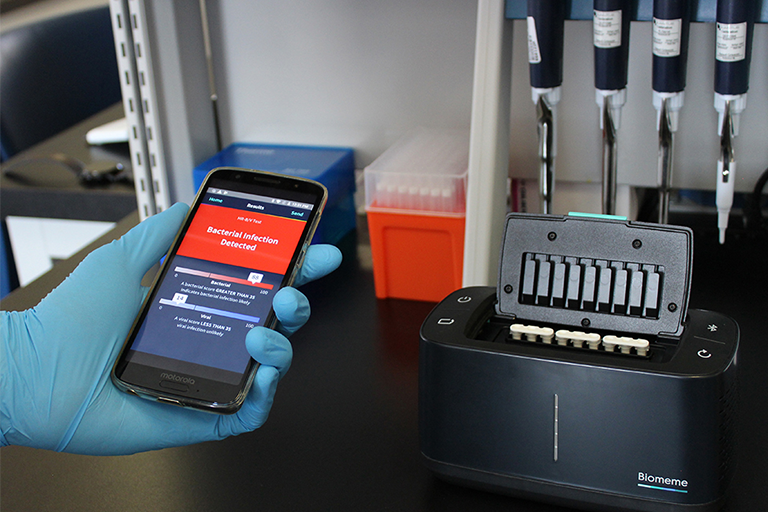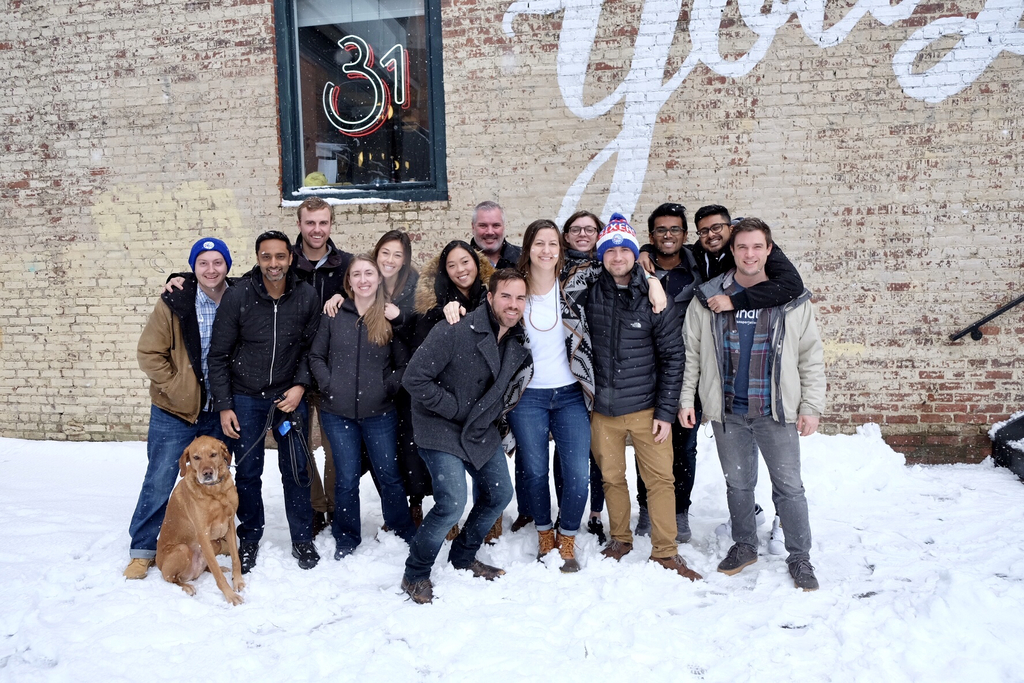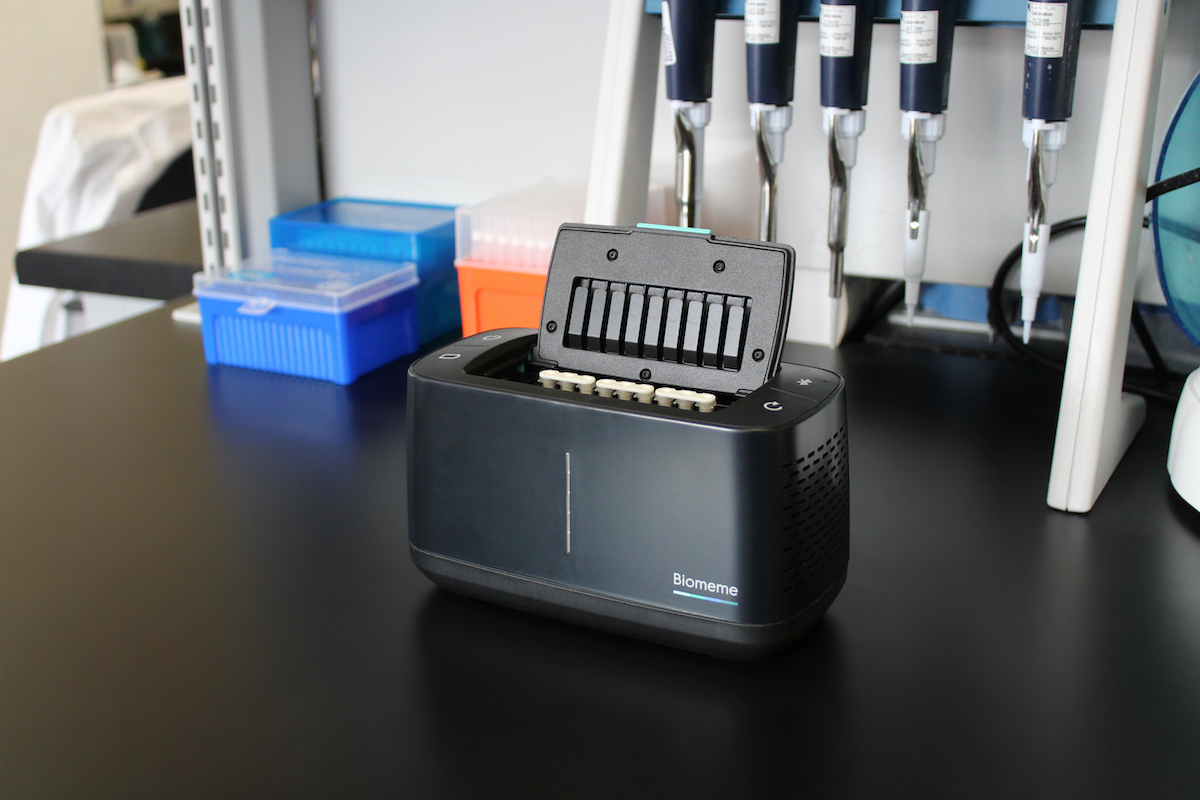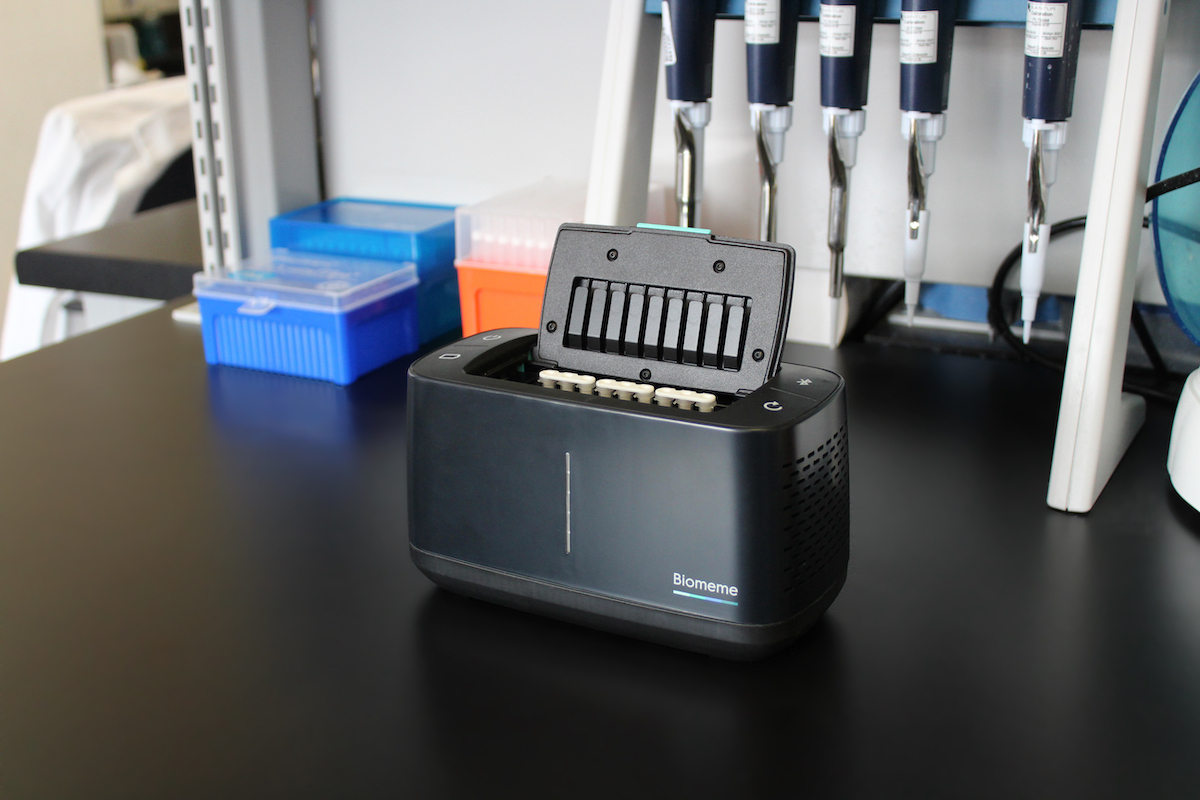The pandemic wrought remarkable changes in diagnostics, some of which may improve healthcare for future generations. It also precipitated a dramatic expansion for Philadelphia-based mini PCR instrument and assay developer Biomeme.
The company is now using revenues from CAP and CLIA accredited testing labs it owns to create a sample-to-answer instrument and further differentiate itself through a focus on host-response testing.
Biomeme was founded in 2013 to commercialize a mini PCR system called Franklin. The company debuted a wholly owned subsidiary of testing labs, called One Health Laboratories, in February of 2019, in part to capitalize on the attributes of the Franklin system, according to Jesse vanWestrienen, a Biomeme cofounder and executive VP of products.
“We felt that a lot of the types of products that Biomeme was creating would be really useful in [lab-developed test] environments and would add some capabilities that other CLIA and CAP labs don’t necessarily have,” vanWestrienen said, like mobility and ease of use.
The firm validated a lab-developed respiratory panel for influenza A, influenza B, and respiratory syncytial virus prior to the pandemic.
Then the pandemic hit and there was a dire need for SARS-CoV-2 testing. In May of 2020, Biomeme obtained Emergency Use Authorization for a lab-developed SARS-CoV-2 assay to be run at One Health Labs, and three months later, it received a second EUA for a modified test using the firm’s two-minute manual nucleic acid extraction kit, called the M1 Sample Prep Cartridge, and running on the Franklin or on standard thermal cyclers.
“Then, it was a matter of scaling because obviously, the demand was insane,” vanWestrienen said.
Over the course of the pandemic, One Health Labs has overseen more than 100 temporary testing sites using the Franklin mobile PCR system.
Read the full article here.
